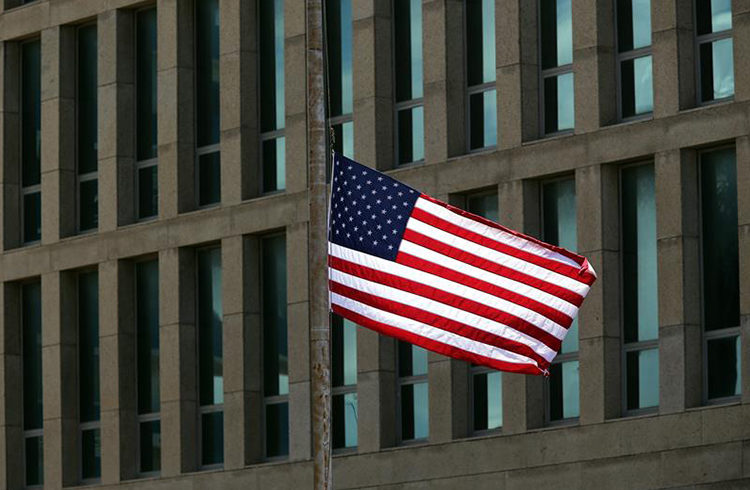A notice from the U.S. embassy in Havana announced that starting August 23 that country’s embassy in the Cuban capital had resumed its services for U.S. citizens in Cuba.
Under the new conditions passports will be able to be renewed, as well as carrying out the paperwork for the application for a first passport, notary services, authentication services, consular reports of births abroad (CRBA) and emergency assistance.
The U.S. Citizens Services Unit is open for visitors without the programmed date these services require from 8:00 a.m. to 4:30 p.m. from Monday to Thursday, and until 3:30 p.m. on Fridays, except on Cuban and U.S. holidays.
On September 27, 2017, the U.S. government ordered the withdrawal of all its non-essential personnel in its embassy in Cuba in response to the so-called “acoustic attacks” that until today have affected 26 of its diplomats on the island.
At that time the Department of State ordered the exit of the non-essential personnel posted in Cuba as well as all their family members.
The communique by Secretary of State Rex Tillerson reported then that until the Cuban government can guarantee the safety of the diplomats in Cuba, the embassy would be reduced to emergency personnel to minimize the number of diplomats at risk of being exposed to the effects.
Starting then, approximately 11 months ago, the remaining personnel in the embassy only carries out emergency services to help U.S. citizens in need.
Since then, the routine visa procedures for Cuban citizens must be carried out in third countries, which has resulted in important hindrances.
Additionally, the Department of State issued in September 2017 a warning for Americans to not travel to Cuba.
This warning has been gradually reduced. Last January Washington transferred Cuba to the list of countries its suggests to “reconsider the trip.”
On August 23 the Department of State improved the classification of Cuba in its travel warning system when it changed it from category 3 to 2, in which travelers are recommended “to take greater precaution.”
Meanwhile, the reason for this relapse in the status of diplomatic relations between both countries has not been clarified by any of the two governments.
Cuba has branded as “opportunistic” and “political manipulation” the use of the term “attacks” by the U.S. government to refer to the health incidents that have affected its diplomats in Havana.
Meanwhile, the United States insists on Cuba’s responsibility to preserve, based on the Vienna conventions, the safety of the officials, presumably compromised.
Due to those attacks, which in the beginning Washington described as acoustic – although later it recognized their nature had not been confirmed -, the United States took the initiative in the treatment of relations with Cuba.
The United States has also detected similar health problems among its diplomatic personnel in the consulate of Guangzhou, in China.










